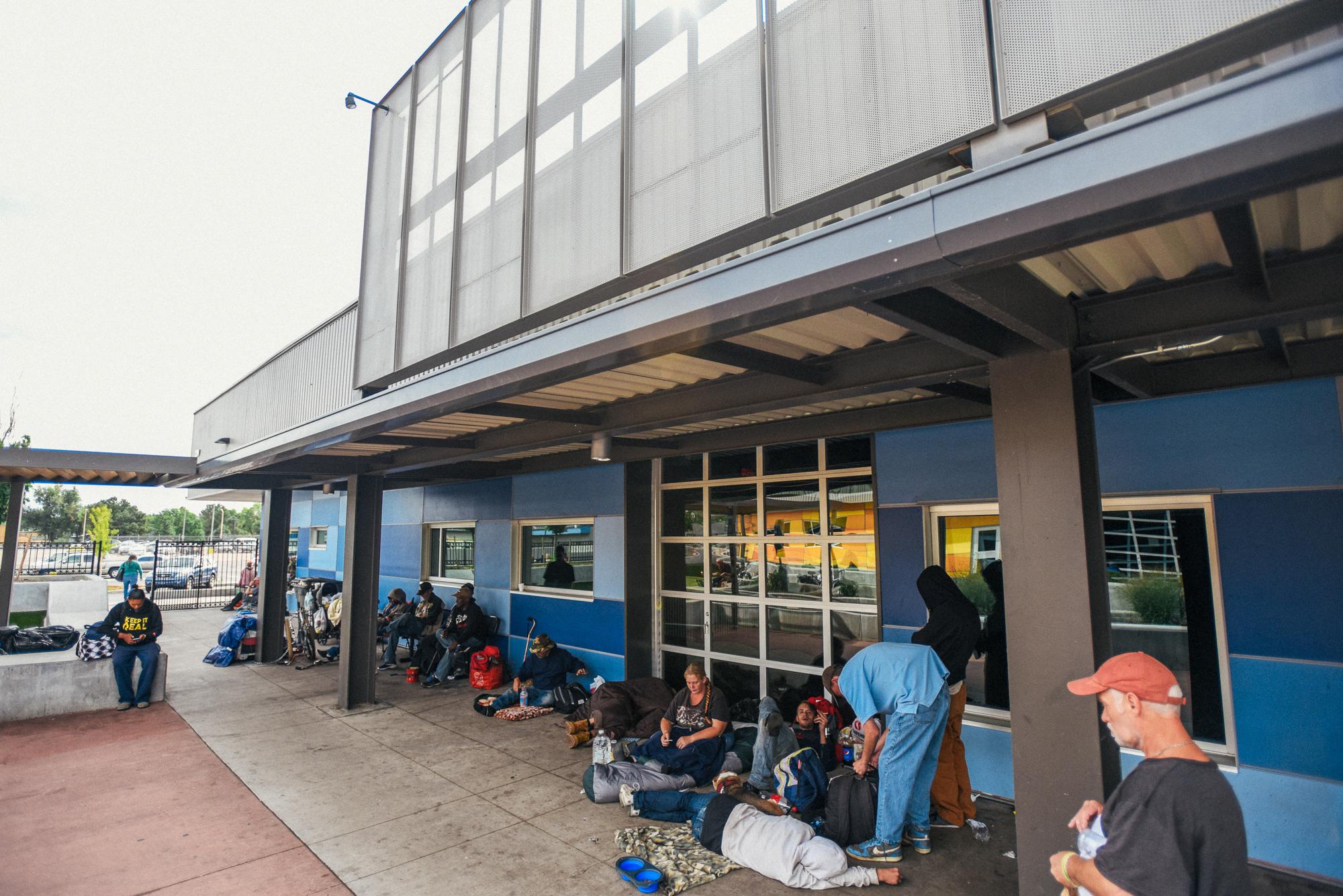
A group of ten nonprofits and charities is calling on Gov. Jared Polis to rush vaccines to homeless shelters and service providers and restore their priority status in Colorado's vaccine distribution plan.
"We know that this virus thrives in congregate settings, and shelters are one of the bigger congregate settings, with people coming and going," said Cathy Alderman, chief communications and policy officer for the Colorado Coalition for the Homeless.
"If the virus begins to spread, it's going to spread quickly to a lot of people."
In a letter sent last week, the Denver Homeless Leadership Council asked the governor to place the staff of homeless services in Phase 1, which is underway now. And they asked Polis to prioritize people experiencing homelessness in Phase 2, which begins in the spring.
"In the new guidance, there is no mention of people experiencing homelessness or the service providers," Alderman said.
Earlier plan changed
An earlier draft of the vaccination plan gave Phase 2 priority to people at shelters, alongside jails and prisons. But the final plan erased that special status, apparently sending people at "congregate living" facilities into Phase 3 with the general public.
"This is extremely disappointing and concerning," the letter said of the change. The Polis administration has similarly deprioritized people in jails and prisons.
Alderman said that shelters' status may have become collateral damage as the administration reacted to criticism of the place of incarcerated people in the earlier plan. Separately, the Colorado Black Democratic Legislative Caucus has urged Polis to reconsider the timeline for inmate vaccinations.
The governor hasn't budged. On Tuesday, his office said that that people with underlying health conditions would be prioritized -- but without special consideration for their living situation. Due to limited vaccine supplies, it could take months to inoculate everyone in Phase 2.
“The Governor believes it is our moral obligation to prioritize vaccinating seniors and the elderly living in nursing homes, as they are at the greatest risk of death from this virus, and simultaneously to inoculate our frontline healthcare heroes who treat COVID-19 patients in a direct way on a day-to-day basis," wrote spokesperson Conor Cahill in an email.
"If a person is over 65 or has another health condition that puts them at an increased risk, they are prioritized to get the vaccine before the general population."
Twenty states prioritize shelters
Twenty states give some degree of priority to homeless shelters, according to the National Academy for State Health Policy. Most commonly, they put shelters in the middle phase of their plans. One state, Massachusetts, includes jails and shelters in its first phase.
In Colorado, outbreaks have wreaked havoc at some smaller shelters. For example, a recent round of tests returned 85% positive results for coronavirus at the Denver Rescue Mission's Harvest Farm in Fort Collins. In Denver, the Urban Peak youth shelter closed to new residents when it hit a positivity rate of 36%.
"We kind of knew it was going to happen, but we thought we had put a lot of protections in place," Alderman said. For now, the larger shelters have been more effective in containing the spread, she said, but providers in the metro area have counted about 900 coronavirus cases and at least 14 deaths during the pandemic.
Services want vaccines for staff, clients
The letter argued that staffers should be in Phase 1 because organizations "can only continue to provide these essential emergency response services if their staff are able to remain in their roles safe from COVID-19." Alderman estimated that shelters would need "hundreds, but not thousands" of vaccines for staff.
Other groups in Phase 1 include health care workers, first responders and people living in long-term care facilities.
The organizations warned that people experiencing homelessness need priority, too. As a group, they are two to three times more likely to die when infected, according to a University of Pennsylvania study. Alderman estimated that 5,000 to 6,000 vaccines might be required to protect people experiencing homelessness.
The letter's signatories including the Colorado Coalition for the Homeless, Catholic Charities of Denver, The Salvation Army and the Volunteers of America of Colorado, among others.









